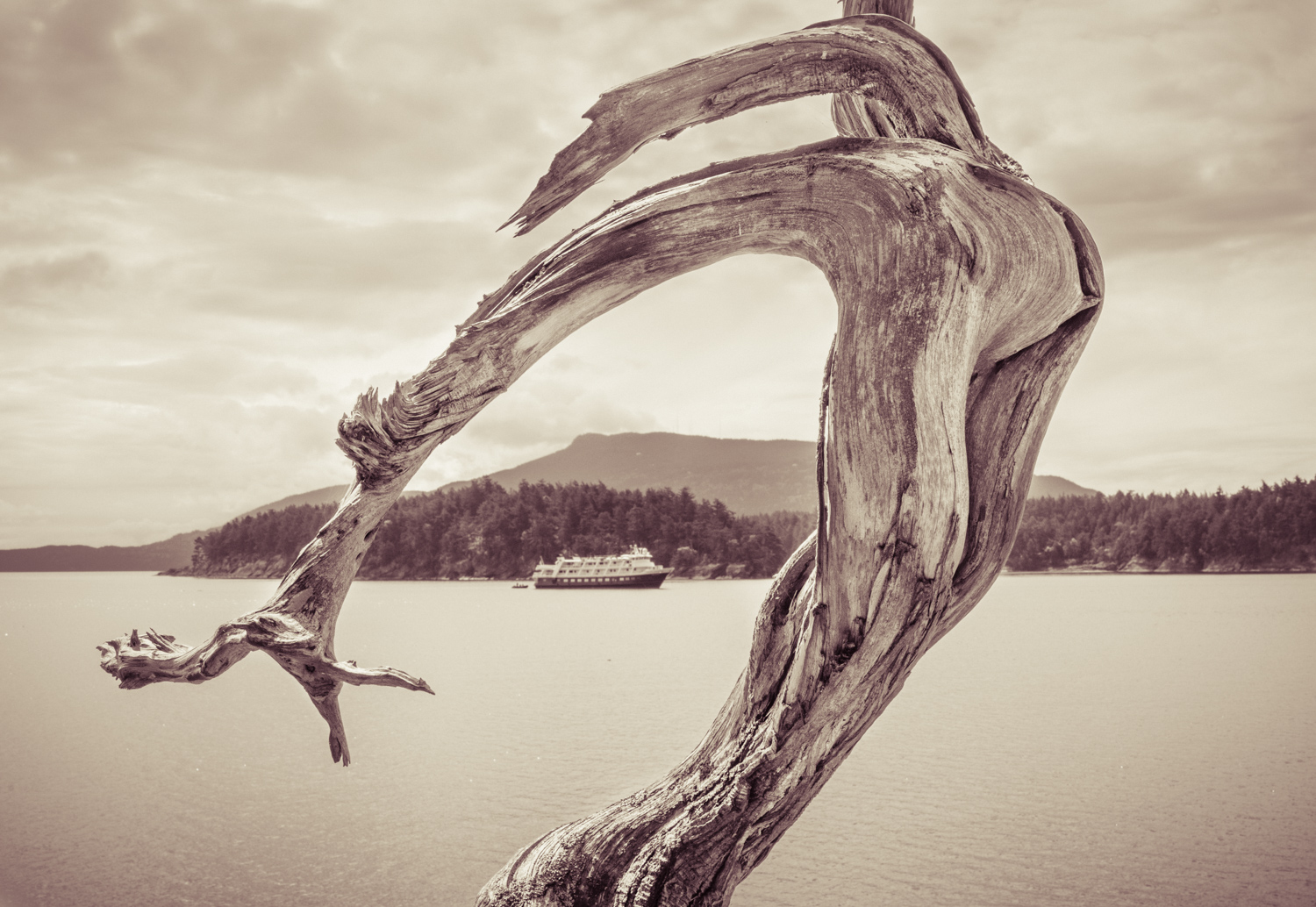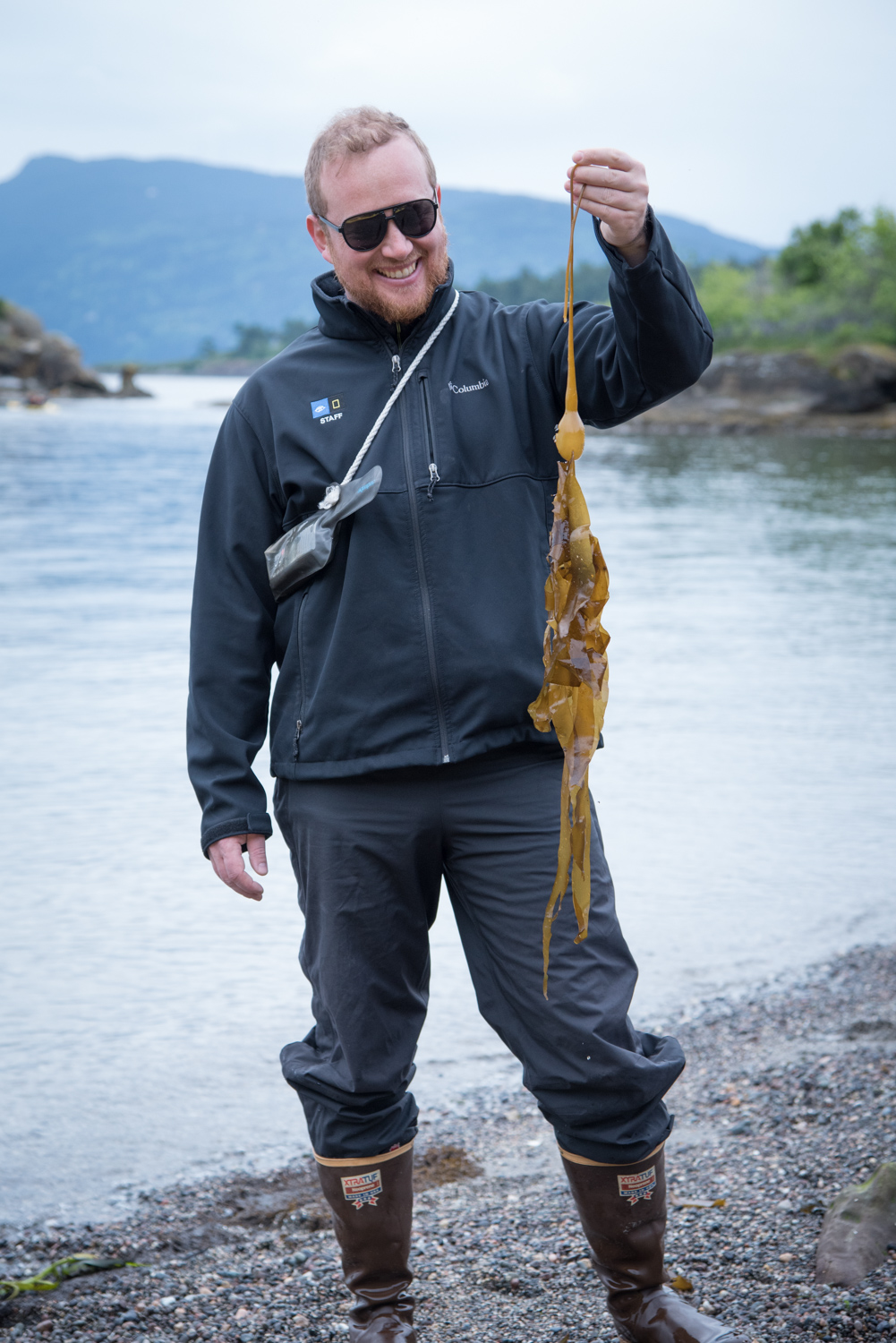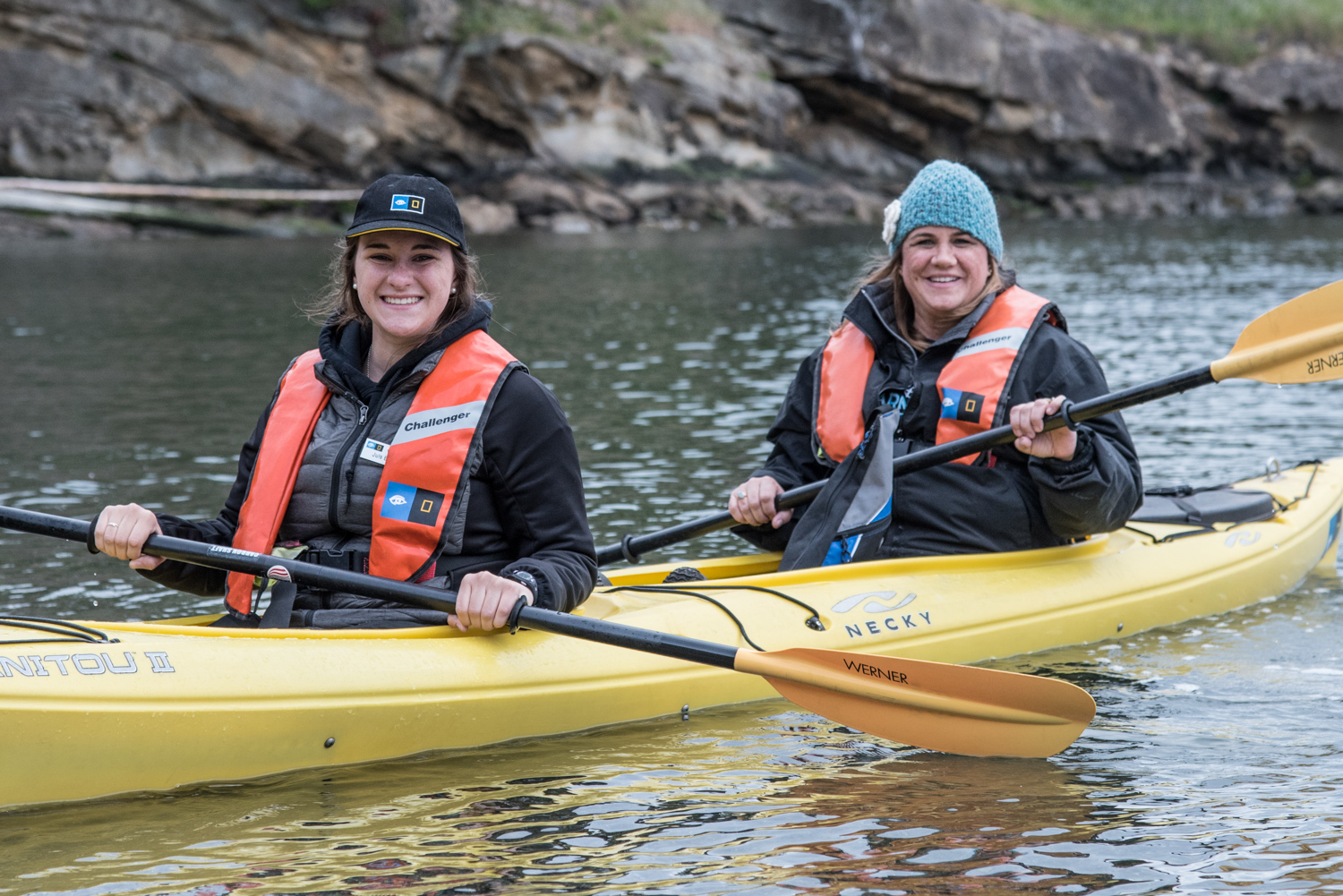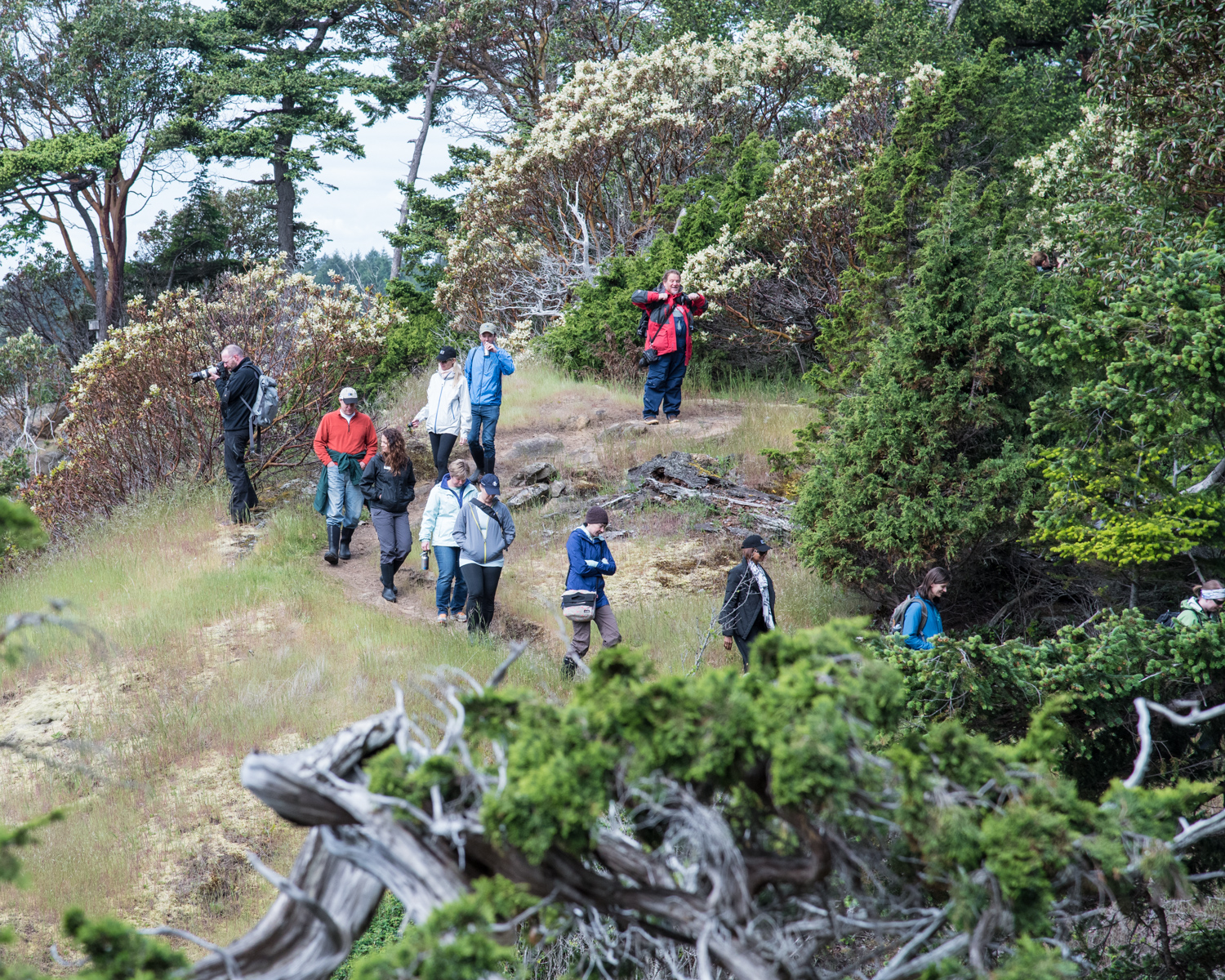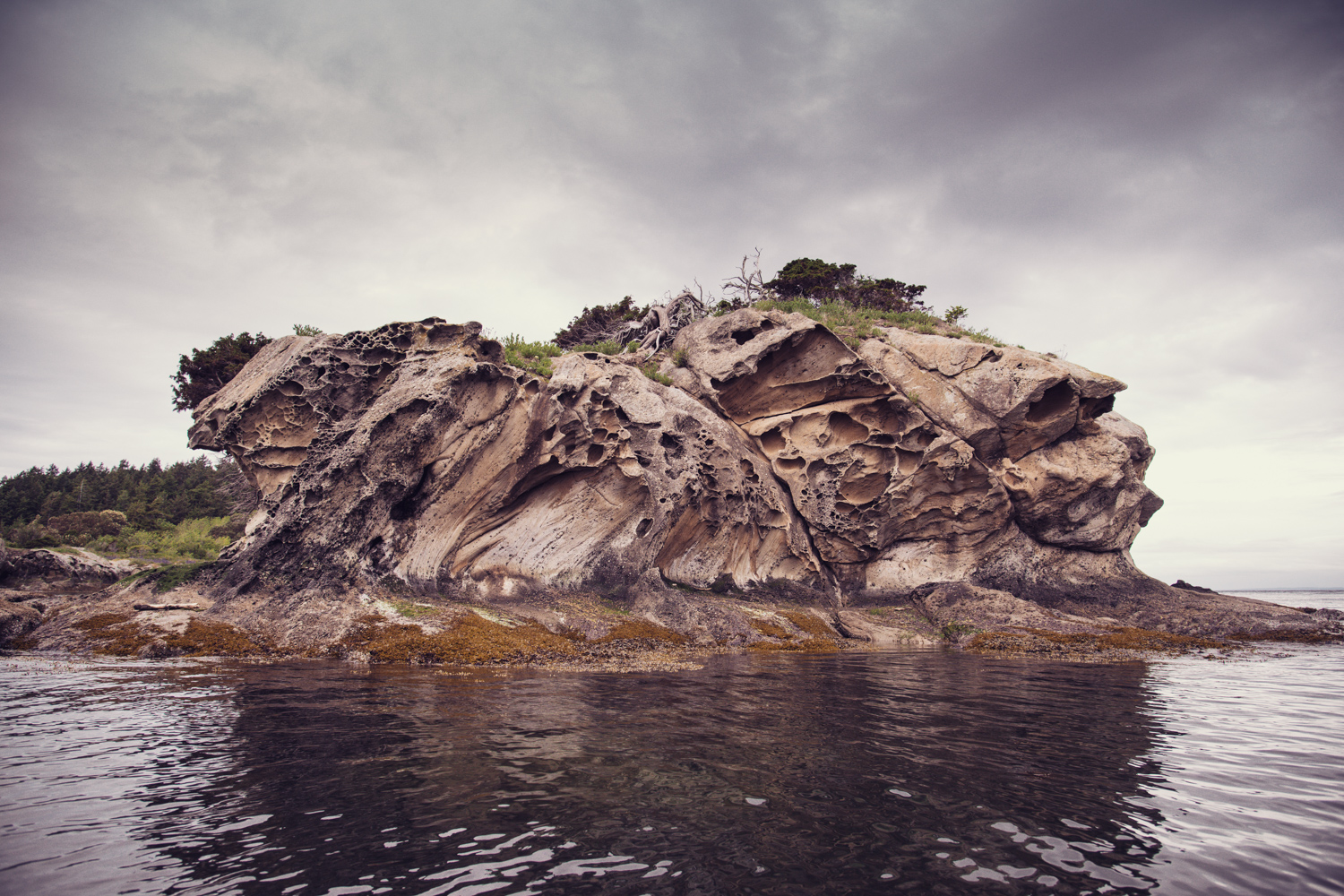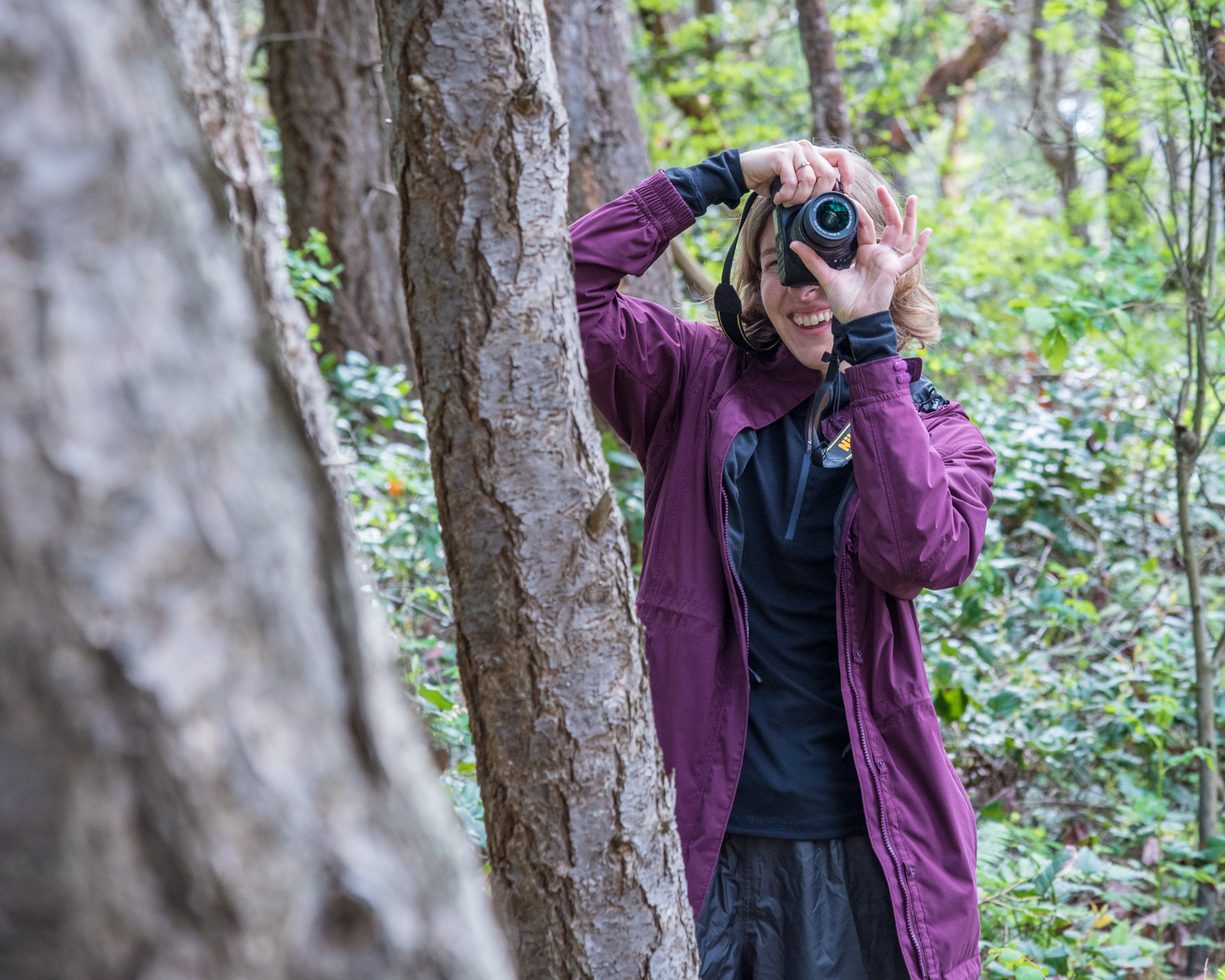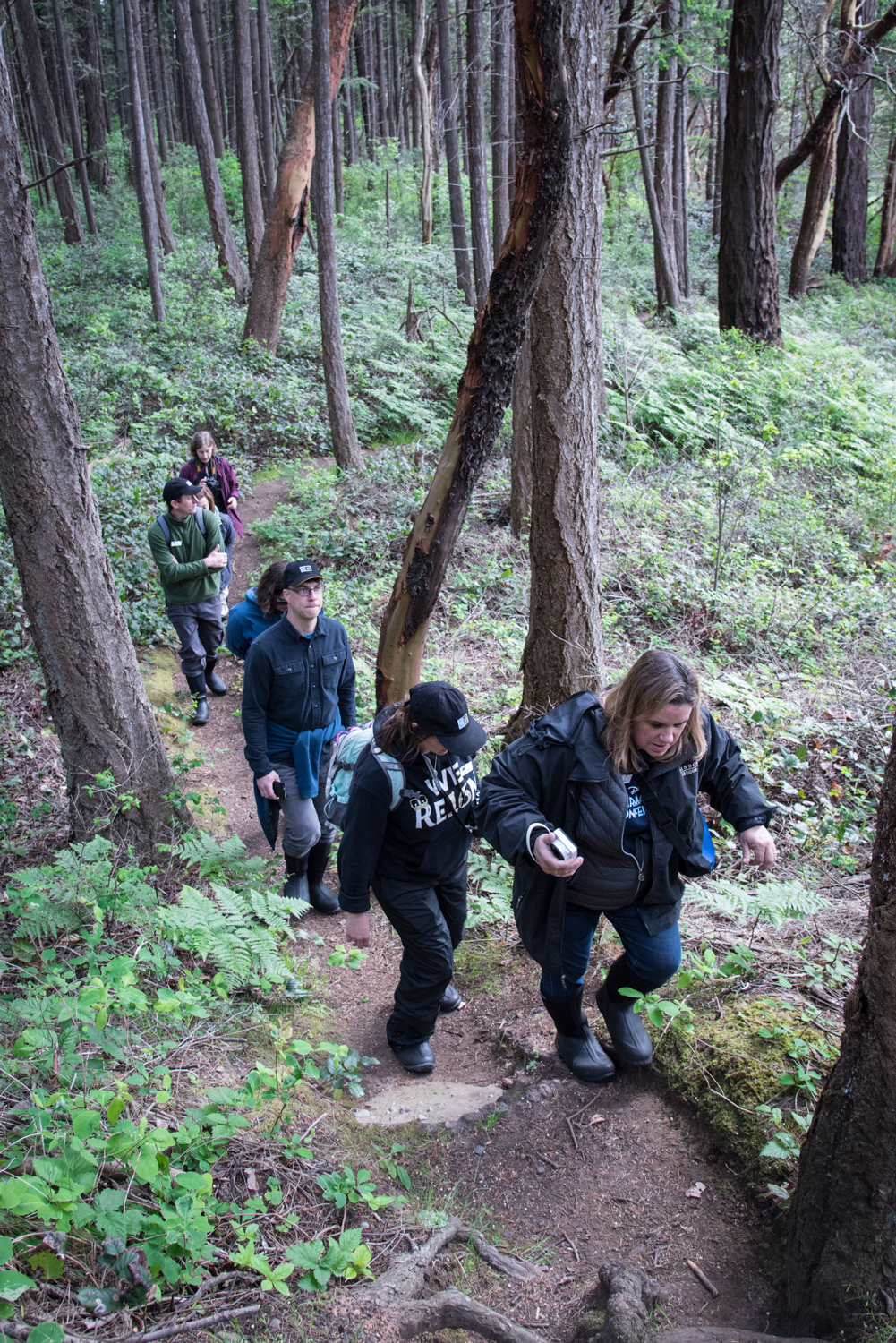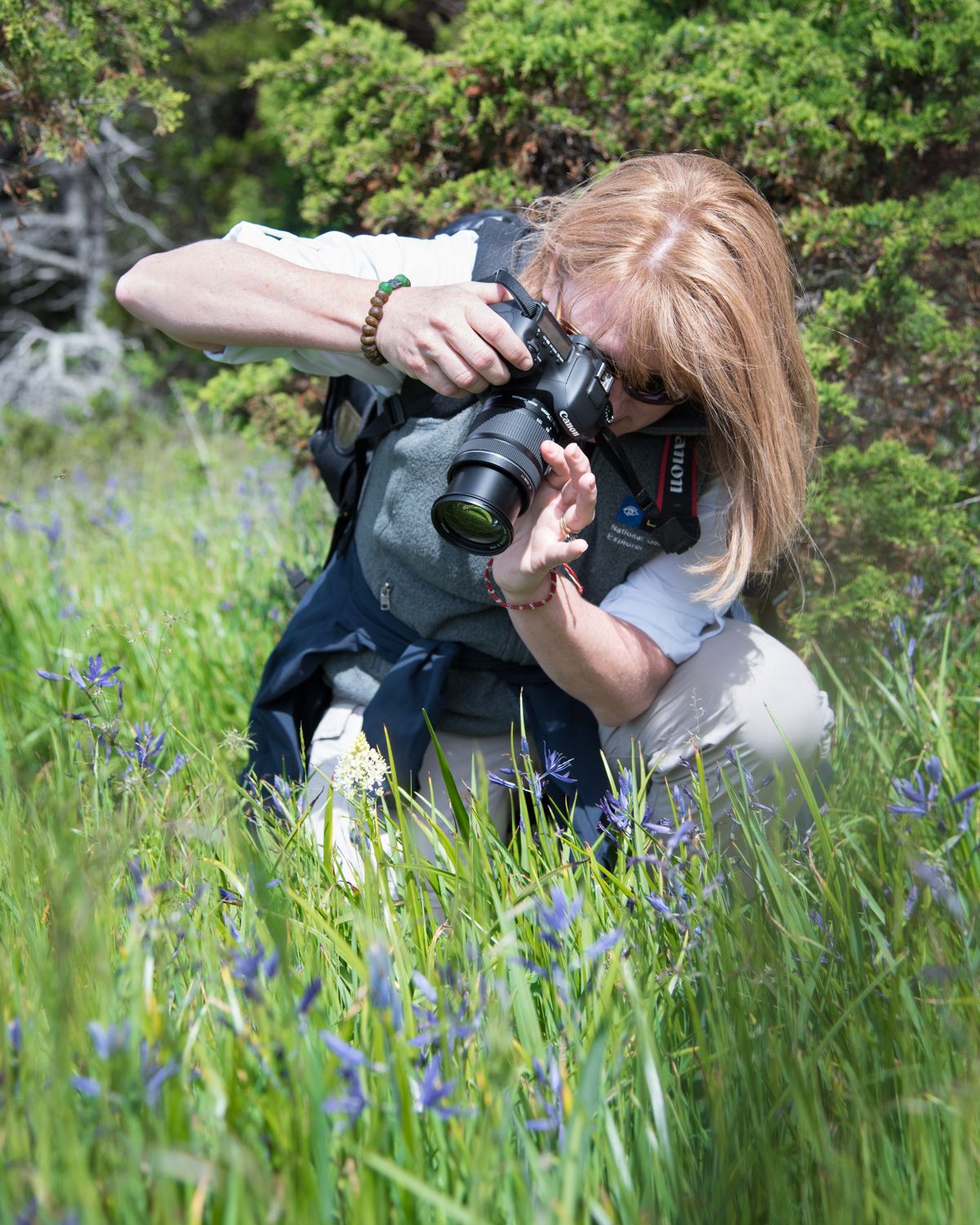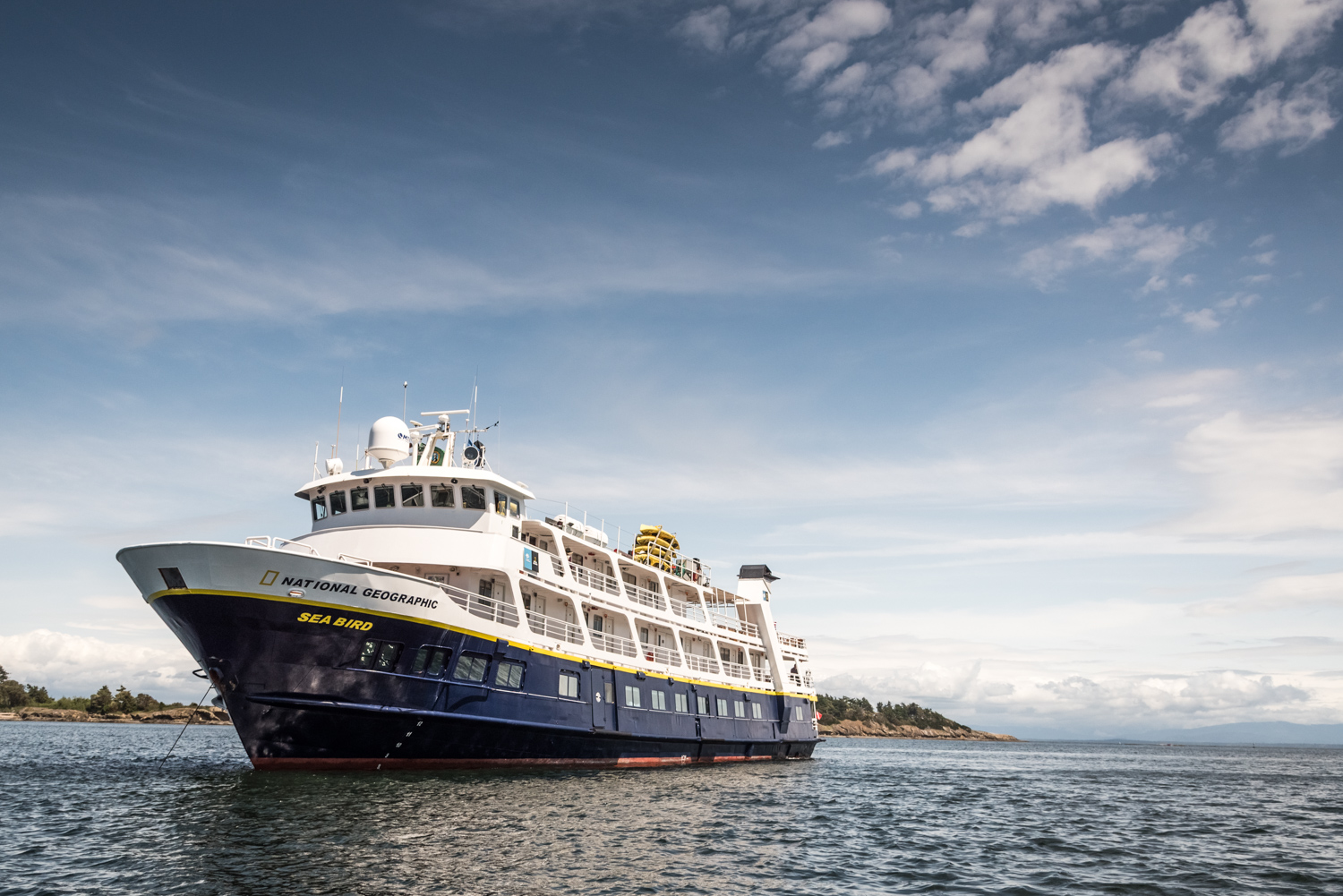Mr. Saturday Night - My First Day As An Assistant Cruise Director
The follow is an excerpt from my memoir, Will My Cane Float? (Voyages into Adulthood and the Adventurous Retirees Who Showed Me the Way).
...From the bow of the Yorktown Clipper, I looked out on Juneau and watched as bald eagles soared high above the Sitka spruce and hemlocks.
The follow is an excerpt from my memoir, Will My Cane Float? (Voyages into Adulthood and the Adventurous Retirees Who Showed Me the Way).
...From the bow of the Yorktown Clipper, I looked out on Juneau and watched as bald eagles soared high above the Sitka spruce and hemlocks. The late afternoon skies were still steely gray. Clouds clung to the mountain tops. Fishing boats loaded down with the day’s catch chugged by, crewed by swarthy men in flannel shirts and hip waiters who paced the decks and plucked ribbons of kelp from tidied nets. I happily took it all in with deep, exaggerated breaths. This is just so Alaska, I thought. Until I caught my reflection in the ship’s windows; a navy pinstripe suit that my mom bought for me in a Men’s Warehouse 2-for-1 sale. The shirt had a sailboat embroidered at the bottom seam, which we took as a sign.
“Are you excited?” Jennifer asked. “Buses are coming any minute.”
I turned towards the good-looking, blonde cruise director as a jaw-stretching yawn came on.
“Yeah. Just trying to wrap my head around all of this.”
She laughed. “Good luck with that!”
Jennifer had been a cruise director for three years on this ship and the company’s smaller ship on the east coast. She stood something like five-foot-four, which, at six-foot-two, made me feel like a giant next to her. Her short-cropped hair fell just below her ears and her smile came with the vision of cheerleaders entertaining a crowd of thousands.
“Look.” Jennifer placed her hand on my arm. “I flew here from New Hampshire and didn’t know what to expect. But I love being in front of people and seeing them happy and I’m sure that’s why you’re here, too. So, just go with it, and remember: without these passengers, you’d be in some office and tomorrow…well, tomorrow we’re going to see a glacier!”
The thoughtful sentiment took me by surprise.
“Are they always so…old?”
Jennifer checked a paper on her clip board and spoke without looking up. “We have the best passengers in the world. That’s all you need to know.”
I felt ashamed that I’d asked. “I get it. I just wasn’t expecting—”
She looked up from the clip board and smiled. “Let’s get you to the hospitality desk!”
Jennifer lead me a glorified office desk in the hallway next to the lounge and told me to wait there until the passengers came, when I’d collect passports and trip tickets. She left me to sit in silence, become lost in thought, as a deckhand pulled wet pant signs from the freshly painted doorway that led to the gangway.
Like a director yelling, “Action!”, someone said, "Busses incoming!" over the radios and the once-quiet ship sprang to life. Stewards in crisp white button-down shirts, black bowties and black skirts (pants for the guys) shot out of the doorway to the crew deck and sprinted towards the lounge. The last ones were still tucking in their shirts as the first group of passengers walked up the gangway. The passengers, a grey-haired group like the one that had disembarked in the morning--regaled me with tales of lost luggage, flight delays, and hopes for adventure. I shook hands, collected trip tickets and passports and tried to be hospitable, as advertised. But my responses rarely went beyond, “I’m sorry, this is my first day. Let me ask Jennifer about that.” Stewards showed the passengers to their cabins with polished grace. The ship's officers appeared in their formal uniforms. I looked down the hallway to see Jennifer mingling with the poise of a politician hot on the campaign trail.
The more I spoke to the passengers the less I knew what to make of them. At first glance, they were my grandparents. Name tags read “Ruth”, “Esther”, “Seymour”, and “Milton.” But Seymour was a retired NASA physicist who worked on the Apollo missions. Esther said she had been to Antarctica twice.
“What made you go twice?” I asked.
“You’ll know when you go once.”
A college alumni group celebrating its 50th anniversary asked me to take pictures of them on the bow as they sang their school’s alma mater. “You’re young,” a man said. “What are you, twelve?”
Ah, twelve. By the time I was twelve, I carried the sting of my one and only stage performance, Casey at the Bat, when I stuttered out “Then he, he, he…he torethecoverofftheball!” as if I’d suffered a tiny stroke. At twelve, I remember crying in my dad’s truck after a loss in Little League. He shared a story he told often, about a young Spartan boy who stole a fox and hid it in his cloak. The boy remained silent, stoic, despite being bitten by the fox as people asked if he’d seen it. By twelve, I was determined to become a Spartan in pinstripes.
Nearly eleven years later, I looked out over a cruise ship lounge as passengers noshed on smoked salmon, assorted cheese cubes and crudité. A young couple (late 60’s) clinked glasses as they looked through broad windows at the flickering lights of Juneau. Others jostled at the bar for their orders. Jennifer motioned me to the front of the room where I stood next to the captain, a gray-haired Bostonian; polished, confident, a charmer hiding his imperious oversight behind a casual smile. He had to sense my fear. No competent person would sweat so much in such a cold environment.
Jennifer tapped the top of the microphone and smiled at me before facing the group.
“Welcome ladies and gentlemen! We are so excited to have you here! Are you excited to be in Alaska?” They cheered as Jennifer paced the floor, a tiny Tony Robbins in heels.
“We have an incredible week planned for you. We’re going to search for humpback whales and orcas, see spectacular fjords and go on beautiful hikes through old growth forest! If you noticed the inflatable boats on the top deck, we’re going to take those out to explore more. And our chefs and hospitality staff are going to spoil you rotten, believe me! We’re here to serve you, so if there’s anything you need, please let us know!”
The crowd hung on her every word, laughing, smiling, eager, even when she lost her train of thought. “I’m just so excited you’re here!” she’d say. The group would smile back and she’d return to the trip details and all of the fun we’d be having.
Meanwhile, I didn’t know what to do with my hands. I noticed that they were folded in front of my crotch and wondered, is this weird? Are they drawing attention to my crotch? I moved them behind my back like a Marine being addressed by his commanding officer. Too formal. I put them in my pockets, then clasped together in front of my stomach, then let them hang by my side—Ken Doll, cruise edition. Jennifer waxed poetic about wilderness and walking in the footsteps of John Muir. I could do no more than fight with my own appendages.
“And now…” Jennifer paused for dramatic effect, “a few words from our new assistant cruise director, Marc!”
The seconds clicked away on the clock in the back of the room. Cocktail forks rattled on appetizer plates. I looked down at the microphone, heavy in my hand, and thumbed at the On/Off button. I searched for the words as Jennifer smiled with hopeful eyes. The captain cast a blank stare. Out of nothing but sheer mimicry, I drew the mic to my lips, took a deep breath and feigned a confident smile.
“Hello…I’m Marc Cappelletti…I’m from Philadelphia…Pennsylvania. And, yeah, I, uh, I know what you’re thinking. I’m not twelve years old. I just graduated from George Washington University and I’m legally allowed to be your assistant cruise director. Thank you. Jennifer?”
A woman to the side laughed out loud as I handed the microphone to Jennifer. The rest just stared. Legally allowed to be here? What does that even mean? It had to be the dumbest thing anyone had ever said on that ship. Or any ship. Anywhere at sea. The captain raised his eyebrows but remained otherwise stone-faced. Jennifer’s body stiffened. In her cardboard smile, I heard, “What are you doing?” But it was too late. I was exposed, a fraud. And I wanted nothing more than to be home and testing the limits of human hibernation.
A Lesson from the Worst Drummer in Belize
The following is an excerpt from my soon-to-be finished story about my year as a small ship cruise director traveling with and learning from my retired passengers.
...The idea of “so what” appeared again the following week in Belize, as Mr. Gallagher danced with his wife to the sounds of a Garifuna band on deck. Every beat of the Garifuna drum tells the story
The following is an excerpt from my soon-to-be finished story about my year as a small ship cruise director traveling with and learning from my retired passengers.
...The idea of “so what” appeared again the following week in Belize, as Mr. Gallagher danced with his wife to the sounds of a Garifuna band on deck. The women dazzled in colorful, flowing, African-inspired dresses set off by the ship's deck lights and striking against the dark night. The men donned similarly colorful shirts and matching pants. Each had dance moves like few on board had ever seen.
“You think I might get a whirl on the drums?” a sweaty Mr. Gallagher asked. The upper buttons on his Hawaiian shirt were undone, revealing a tuft of wiry, white hair. “I don’t know how to play, but I’ve always wanted to try.”
I bobbed my head to the beat. “Um, sure. I’ll see what they say.”
The band played on. Rum punches flowed. I mingled (refining that cruise director charm I'd struggled to find for so long), and helped the chefs bring the containers of melting ice cream from the sundae bar on deck down to the galley. Fresh drink in hand, I forgot about Mr. Gallagher until I returned to the sun deck and the band packing up their instruments.
“Did they say I can play?” Mr. Gallagher asked.
Shit. “I’m so sorry. I forgot to ask.”
His shoulders sank. “Do you think you can? I really wanted to play.”
“Sure. Of course. Would you just excuse me for one second?”
He nodded and I rushed to the ship's office where my assistant, Tim, sat typing an email.
“Party still going out there?” he asked.
“The band is packing up but I need them to play one more song.”
Without a word, Tim reached for a coffee mug on the shelf.
We called the mug the “slush jar.” As cruise directors, Jennifer, Abby, Steve and I had the job down. As accountants, we were doomed. Nothing ever added up. On any given week, we could be short $50 or over by $250 or more, depending on who was counting. We used the mug to store balance sheet overages and took from it when we were under. No matter the problem, the solution was always in the slush jar.
With my deep appreciation for their talent and the aid of a $20 handshake, the band leader obliged us one more song.
“And would you mind if my friend over there sat in on one of the drums?" I asked. "I think he’ll be really good.”
The band leader looked at Mr. Gallagher and laughed to himself. “Dat man?”
I nodded. “Dat man.”
“Ok den. Bring him up. Eel play dat small drum.”
The encore started with a bang as the band’s main drummer set the beat. The guitarist jumped in. The women sang in full voice. Like before, the rhythm had people moving. But this time, one musician stood out among the rest. If a rock song is 120 beats per minute, Mr. Gallagher was at 5,000. Buddy Rich would have told him to "tone it down." He beamed at his fellow passengers as he beat the hell out of the small drum, smacking it with both hands, one hand on top, one on the side, every way it could be hit while his wife snapped photos. At one point, he stopped drumming to give her a thumbs up. Sweat poured down his face. The singers stared. The band leader laughed. Out of nowhere, Mr. Gallagher worked up to a crescendo—totally out of place for the song—throwing his hands in the air before beating the drum again with an impressionist's version of the beat.
The song ended crisply. Mr. Gallagher stopped a few beats later. While our group cheered for the performers, Mr. Gallagher shook each of the band member's hands vigorously and thanked them before rejoining us and embracing his wife. The band clapped for him, smiling and shaking their heads in disbelief.
After the passengers retired to their cabins and the ship was quiet, I did my usual walk around to make sure that everything was clean and ready for the next day. I was passing the sun deck when I saw Mr. Gallagher laying in a lounge chair and staring at the star-filled sky.
“How did you like that drum?” I asked.
He smiled. “I’ve wanted to play the drums since I was a kid but I never did. Something about this trip and seeing that band tonight told me that I couldn’t wait any longer.”
With the ship's lights now dimmed, I couldn’t see his crow’s feet and wrinkles, only a pair of piercing blue eyes and his white teeth through a wide, ageless smile.
“You didn’t care that you didn’t know how to play before you went up there?”
“So what! You got to start somewhere." He looked up at the stars again. “Marc, don’t wait seventy five years to do something. Whatever it is, anything, if you really want to do it, just do it.”
“Maybe you should take lessons and start a band?” I suggested.
He clapped his hands together and pointed at me. “Now there’s an idea!”
I left him to enjoy a quiet moment on deck, certain that he already had his bandmates picked out.
The "Just go!" Manifesto
There’s the blogger girl, the travel hack genius and the wandering nomad whose life you really want, the couple who sells everything and hits the road, the fearless adventurer, and the people who know exactly what to order at that amazing restaurant in Marrakesh.
I love these people. They inspire me. But I'm not them.
There’s the blogger girl, the travel hack genius and the wandering nomad whose life you really want, the couple who sells everything and hits the road, the fearless adventurer, and the people who know exactly what to order at that amazing restaurant in Marrakesh.
I love these people. They inspire me. But I'm not them.
I’m the “just go” guy.
So, should I go to Barcelona or Beijing?
I’m not that guy either.
I’m the “just go” guy.
Well, then what good are you?
I think a lot of good. Because since studying abroad and throughout a 15-year career in international education and expedition development, I’ve learned that every trip is life changing. It's not always what you seek, but you gain something from every new adventure, near or far. And 99% of all trips end before they even start.
Let me reiterate: 99% of life-changing trips end before they even start.
So, while I’ll gladly recommend other people who can help you finance your trip, save money while you’re there, or tell you where to go and where to avoid, I will focus on getting you out the door.
When I graduated college, a brutal case of mono laid me out for weeks. I became so gripped by a post-grad depression that I couldn’t see myself doing anything. Then a door opened—a call from a friend and the opportunity to work aboard a small cruise ship. I wavered for a while, but eventually disregarded my disdain for The Love Boat and sudden-onset muteness when placed in front of groups. I became obsessed with the opportunity to travel, and of seeing Bora Bora in particular.
I went for it not knowing where I’d go, who I’d travel with and, frankly, how the hell I was going to do it.
While the destinations themselves offered opportunities for adventure, the surprising value came from my passengers, groups of retirees who lived like it was the last trip they would ever take. These incredible people helped me see into the future, to mine the qualities that make for a great life, which I strive for (then fail at and strive for again) every day. They are the inspiration that helped to write my free download, 6 Ways to Find Happiness on the Horizon (Lessons from My Year at Sea with Retired America), which you receive when signing up for the monthly travel inspiration email (details below).
See, I wouldn’t achieve my goal of visiting Bora Bora by ship until 12 years after I set out. In that time, I worked to send college students on international internships and developed expeditions in Alaska, British Columbia and Central America for Lindblad Expeditions and National Geographic. I’ve been able to do and see so much more than Bora Bora (which is amazing, btw!) all because years ago something inside me said, “Just go!”
Now, if the only thing I ever did for you was to say the same, I’d be pretty easy to say, “Ummm, no,” to. And it would be annoying as hell. So, what I really want to do with this site is help produce in you a "why" so strong that going is easier than staying put.
I’ll do this by sharing:
- Stories of my experiences, the lessons gleaned from those I’ve traveled with, stories of others who who've gone on a journey and returned with valuable info
- Curated news stories of awesomeness all around
- A podcast/blog featuring interviews with successful people from all walks of life who share how a particular trip helped to shape them into the person they are today (coming soon)
- Reading suggestions, folks to follow, and quotes that deliver as much wisdom as a 300-page book (I will also recommend some 300-page books)
You can find it all on this site and by signing up for the monthly email. I hope the information it contains opens up your world and provides valuable and applicable insights for your next trip, whether it's to Bora Bora or a place a town over that you always pass by. Every day can be an adventure.
Thank you so much for visiting my site and reading this manifesto. I look forward to connecting.
Marc
“20 years from now you will be more disappointed by the things that you didn’t do than by the ones you did do. So throw off the bowlines. Sail away from the safe harbor. Catch the trade winds in your sails. Explore. Dream. Discover.”
The Last Time (A Toast to Exploration)
A while ago, I was inspired to write a toast for a group traveling aboard the National Geographic Sea Bird in the San Juan Islands. We were together for only two days but in that time were able to hike, kayak and spend a sunny afternoon watching killer whales feed. At one point during the hike I noticed a woman bending down to touch some flowers and I bent down to do the same. I wondered, when is the last time I did this? It got me thinking. That night, I read this. It received a great response, so I'm sharing it here with you:
The Last Time (A Toast to Exploration)
When is the last time that you knelt down and felt the ground beneath your feet? When you ran your hands over juniper roots or purple petaled wildflowers, and wondered about the world around you?
When is the last time that you noticed a sweetness in the air, and breathed deeper to fill your lungs, purposefully, wakefully?
When is the last time you didn’t care about getting your shoes wet? Or lying on the ground because, hey, that’s the only way to get the shot?
Or when you stopped—just stopped—and in the silence of the forest, listened to a bird’s singular song?
When is the last time you said wow? Or tasted something so delicious you put your fork down to really taste it. Or when you were consumed with anticipation—for killer whales this afternoon, or, maybe, for dessert tonight?
Did these times make you feel excited? Awake? Alive? For me, all of the above. If you felt the same, we should cherish that. But here’s the thing about last times. We cannot let them be the last time—not for ourselves, not for others.
This world is too interesting, too rich, too incomprehensibly magical to exist without us peeking around every corner, turning over every rock, asking every question. In our time here, there should not be lasts, only firsts and nexts. If we keep to that, what great discoveries we can make.
So let’s raise a glass and toast--to exploration, to inspiring others to explore, and to the next time that we can all do it together.
~Thank you.
The Magnificent, Lone Spruce
The magnificent spruce rose like no other tree in the forest. Its trunk stood perfectly straight, so thick that even with three of us and a guide hugging it, our fingertips couldn't meet. Few other trees soared as high, none as perfect.
But there was something strange about this spruce. From its base, it took at least fifty paces in all directions to reach the nearest tree. The ground around it was clean except for a few bare rocks, while the rest of the forest was covered in spongy mosses and brush.
"It's like that big one moved itself away," I said, immediately feeling silly for saying it.
No one heard because they were crawling with the guide and studying the different types of moss on the forest floor. I knelt with them, noticing that what I first saw as a green swath was actually a network of different mosses, each with a different shape and texture and shade. Rocks covered in bright orange and red lichens dotted the green carpet.
"These lichens secrete acids that break down the rocks over time," our guide said. "That helps create new soil. And you know, if you dig below this moss, you'd find what's called the mycorrhizal network."
We looked closer.
"The mycorrhizal is a web of fungus beneath the surface that connects these trees. The cells interact with the root cells and share carbon and water and nitrogen and hormones. Even defense cells and information. You could say that they talk."
We drew closer to the ground, as if we'd be able to listen in.
"See the biggest trees around here? Chances are they are "mother trees" and have the most connections to all of the other trees; sometimes hundreds. They give a lot—certain times of year more than they receive—but when they need it, and they always do, they rely on that network to feed them nutrients or information and keep them healthy. It's a complete give and take depending on conditions and seasons. Scientists call it the "wood wide web."
We rolled our eyes at the joke and trekked deeper into the forest, wondering what other microscopic miracles we were stepping on.
On our way back, we stopped at the magnificent spruce.
"How long ago do you think it died?" my friend asked the guide.
"I can't tell," she said. "Years. You can see the forest has continued to grow. In time, it will grow back around the spruce. Something may even spring up from inside it. You never know. It's the forest we need to think about anyway. Not the trees."





